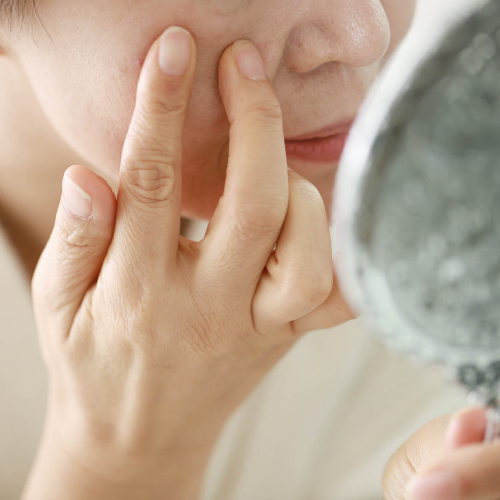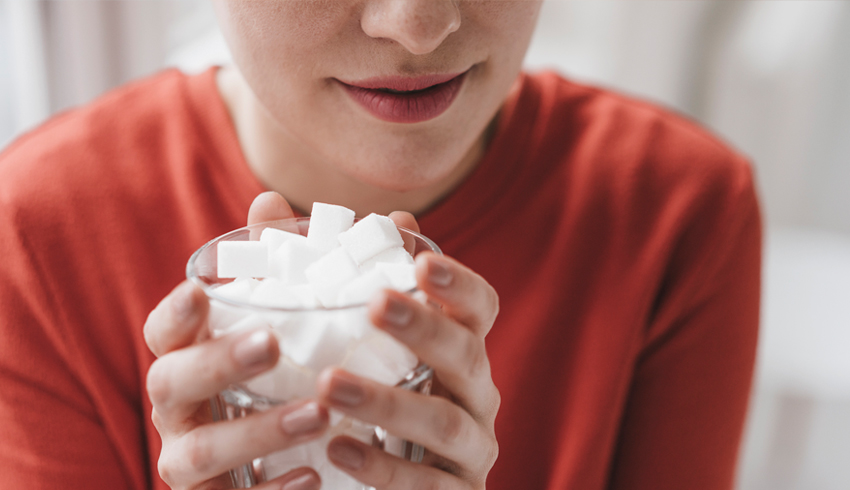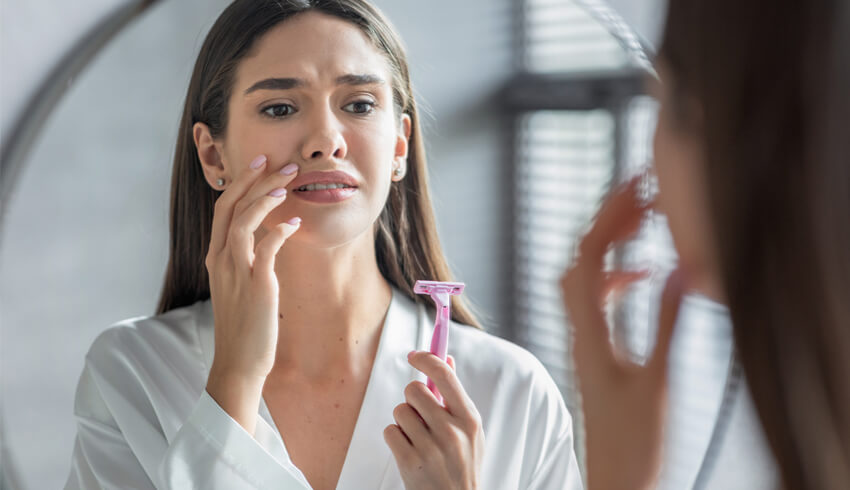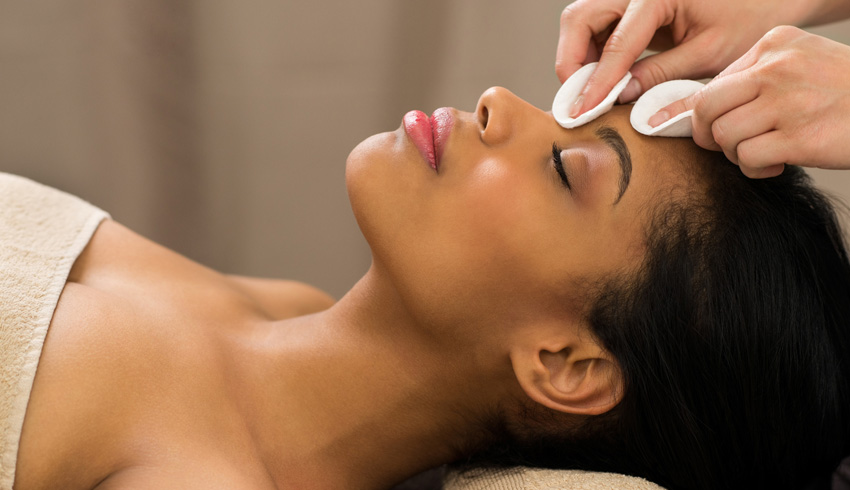
When you’re trying to care for your skin with a proper new routine, the last thing you want to see after a week or two is a worsening complexion with breakouts. Whether you’re using more active ingredients or staying diligent with a cleansing routine, you might be wondering what on earth is causing the increase of pimples, noticeably clogged pores or even patchy dryness. Key questions to consider: are these new skin care products the source of your issues? Are they causing a temporary purge or a permanent reaction? How can you tell if your skin is purging or breaking out? Let's find out!
What Is Skin Purging?
When you start a new skin care routine or incorporate new products into your current regimen, you may experience breakouts or skin flaking. This process is sometimes called purging.
This is a normal, short-term condition where the skin will rid itself of underlying oil, bacteria, or dirt, according to Dr. Hooman Khorasani. Dr. Khorasani is a triple board-certified, fellowship-trained cosmetic and skin cancer surgeon based in New York. “These flare-ups usually have a shorter lifespan than your usual breakouts, which can last up to six weeks. And although purging may occur, it is not a guaranteed concern when switching products,” he says.
Any time you use ingredients to promote cell turnover and skin peel (think: actives that shed dead skin cells to reveal fresh, younger-looking cells), there’s a good chance you’ll experience a period of purging as well!
That’s not to say everyone will experience a purge after using an exfoliating product. All skin types are different and while some might purge more than others, it all depends on the sensitivity of the skin and what’s deep inside the pores ready to be pushed out. Before those youthful-looking cells from deeper layers of the skin become exposed, a lot of other things get pushed to the surface, causing tiny whiteheads or blackheads as well as peeling or dry, flaky skin.
Various ingredients in a skin care routine are more responsive than others for the purging process. For example, active ingredients formulated to boost or accelerate cell turnover or exfoliate are likely to trigger a purge – chemical exfoliants like hydroxy acids are one of the most common types of ingredients behind a skin purge. After applying an active exfoliant to the skin, it loosens up the congestion deep within pores and pushes it toward the surface of the skin, causing what looks like a breakout but is actually just your skin going through a cycle.
Another point to consider: The purging you see after starting a new skin care routine or after using active exfoliants are typically microcomedones (tiny pimples that aren’t visible to the eye) that exist below the surface of the skin and coming to the surface during accelerated cell turnover. You might also notice increased purging takes place around the oily T-zone or common areas of your breakouts, such as the nose, chin or forehead.
Skin Purging Vs. Breakouts
It’s important to recognize the difference between purging and breakouts due to a reaction to recognize what’s considered "normal" and what’s an indicator that you should stop using a product or ingredient.
Here are some characteristics to determine whether your skin is purging or you’re experiencing a reaction-type breakout:
- Purging: Located predominantly in a defined area where you already have frequent breakouts. Skin purging also clears up much faster than a pimple or reaction.
- Reaction-based breakout: You’re getting breakouts in new areas where you don’t often get pimples. The timeline from development to breakout and subsequent healing runs much longer — about one to six weeks.
For most skin types, using acid exfoliants for the first time could lead to some level of dryness and redness in the beginning, especially if used too frequently. If you’re using products outside of this category, such as serums, toners or moisturizers that don’t contain active ingredients, and find your skin gets irritated or breaks out, your issue could be a sensitivity to a particular ingredient.
Keep in mind that there are vast differences between what causes purging and what promotes the development of acne. So, what causes acne? Factors such as hormones, oil production and bacteria are usually responsible for breakouts. It’s also a good idea to understand the five most common types of acne, how they differ from a skin purge, and how they present in different ways so you can adjust your routine.
What To Do if Your Skin Is Purging
When your skin is going through the purging process, it’s important to maintain a routine to keep all factors consistent. While it might not be encouraging to see a skin purge for the first few weeks of a new routine, there are a few tips to incorporate into a skin care routine to help your complexion make it through this transitionary period.
Wait Long Enough To See if It Is a Purge
While everyone’s skin type is different, it usually takes only one cycle for the most noticeable purging to be done. But it could take between four and six weeks to truly see the benefit of using any potent skin care ingredients. As they say, consistency is key!
Although individual purging flareups may clear up quickly, the whole purging process could take longer. An average skin cycle lasts about 28 days, so consider going through at least one full cycle to shed dead skin cells and get through most of the purging process before changing anything in a routine.
Gradually incorporate active ingredients, such as acid exfoliants, into a routine that gives your skin time to adjust without experiencing a noticeable purge or reaction. The best way to start with a product is to use it two times a week then increase to three or four times over the course of a month until you’re using a product daily or as directed.
Don’t Add Products That Dry Skin Out
When using active ingredients or exfoliants, avoid anything that will cause dryness. For some, the purging process includes eliminating excess sebum or oil, so you don’t want to over-exfoliate and cause dry, red skin.
See a Professional
As your skin begins to purge impurities from deep within its layers, we strongly recommend that you contact an Eminence Organics Spa Partner for a virtual or in-person consultation and consider booking a facial. Your esthetician can help remove excess impurities and cleanse gently to amplify the health and glow of your skin and bring out a clear and radiant complexion.
You can also watch this video with Lead Skin Care Trainer Natalie Pergar on the difference between purging vs. breaking out.
What To Do if Your Skin Is Reacting
Are you experiencing a reaction on the skin that appears to be more than a purge? Stop using any new products for a week – if the breakouts go away then it’s most likely your skin reacting to an ingredient, and it might not be the best option for your skin type.
Using strong acne face wash or active ingredients too quickly can lead to not only breakouts but also dryness, peeling and redness, all of which can be avoided by easing into use over time.
One way to ensure you find the best products for your skin is to consult with a licensed professional at an Eminence Organics Spa Partner. They can analyze your skin type and concerns, then provide a range of options to meet your skin care needs. To learn more about which active ingredients are right for your skin or to get in touch with an Eminence Organics Spa Partner for an in-person or virtual consultation, visit our Spa Locator.




